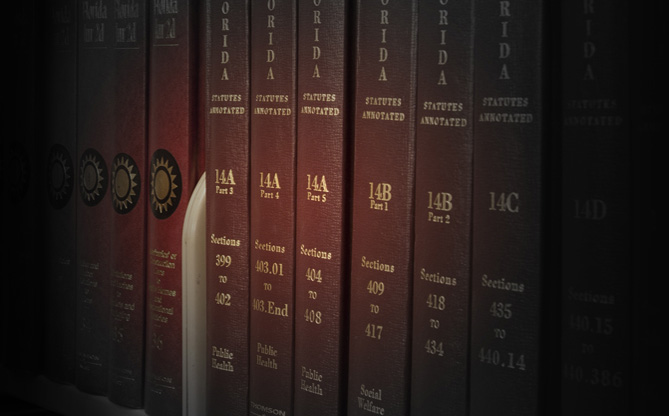The Coronavirus (COVID-19) pandemic has impacted nearly every aspect of daily life, including the need to keep a safe distance from others. We have adapted by creating solutions to limit human contact and promote health and safety, such as grocery store delivery services, virtual happy hours, and virtual at-home workouts, just to name a few. Tenants and their landlords, having been particularly hard hit by the pandemic, are looking for solutions as well. Fortunately, a few recent revisions to the Florida Statutes offer some wanted solutions to landlords and tenants by making the process of lease executions easier during this time of needed social distancing.
Witnesses to Leases (Florida Statute § 689.01)
Florida House Bill 469, signed by Governor Ron DeSantis on June 27, 2020, went into effect on July 1, 2020. Before the law was passed, Section 689.01, Florida Statutes required two subscribing witnesses to be present when a landlord signed a lease for a term longer than one year. The amended statute now removes the requirement of two subscribing witnesses for a lease of real property. This change applies to both commercial and residential leases, and should greatly simplify the lease execution process. Notably, as Florida has long recognized the validity of electronic signatures, because there is no longer a witness requirement, landlords and tenants can execute leases by digital or electronic signature. The amended statute’s removal of the witness requirement only applies to leases, however. Other instruments conveying an interest in real property, such as deeds and easements, still require two subscribing witnesses for the granting party, either by physical presence or electronically by audio-video technology.
Remote Online Notarizations (Florida Statute §§ 117.201-117.305)
Florida House Bill 409, which went into effect on January 1, 2020, authorizes remote online notarizations (“RON”) after a notary satisfies certain application and training requirements. The online notary must be physically located in Florida, but the witnesses and principal can be at any location. Audio-video communication technology through an authorized RON service provider is additionally required under this statute to authentically notarize a document online. While leases do not have to be notarized under Florida law, landlords and tenants can benefit under this new law when notarizing other documents recorded in connection with leases, such as memorandum of leases or subordination agreements.
Even though “business as usual” may seem to be in the distant future, these laws provide landlords and tenants the opportunity to efficiently process new leases and lease amendments, all from a safe distance.


